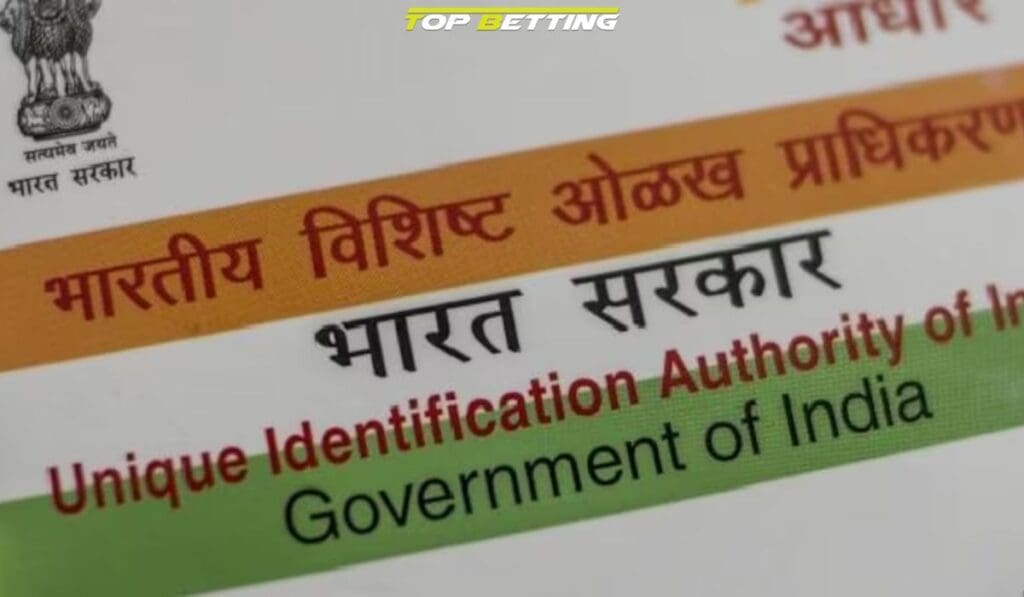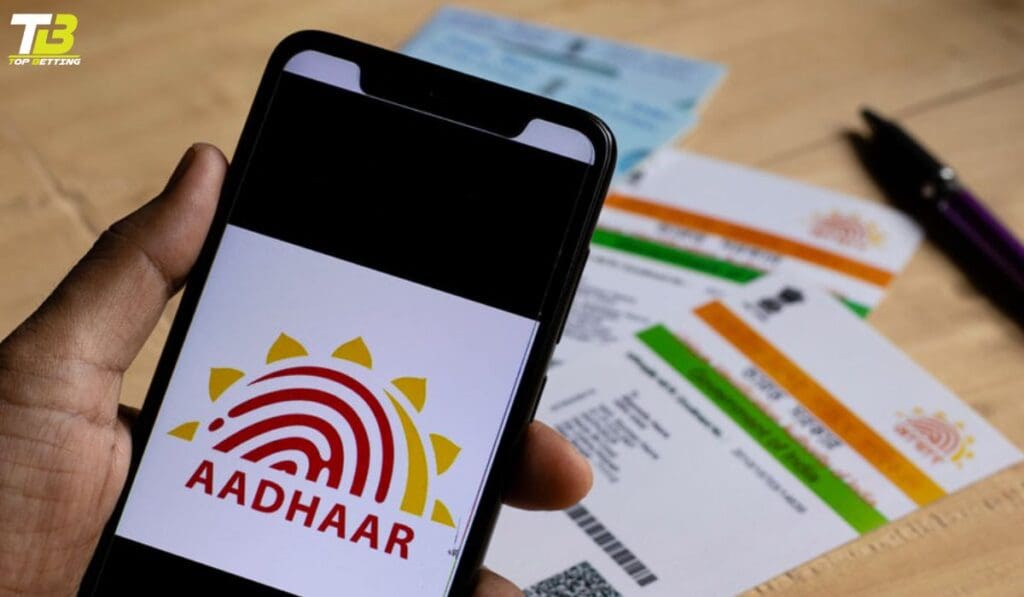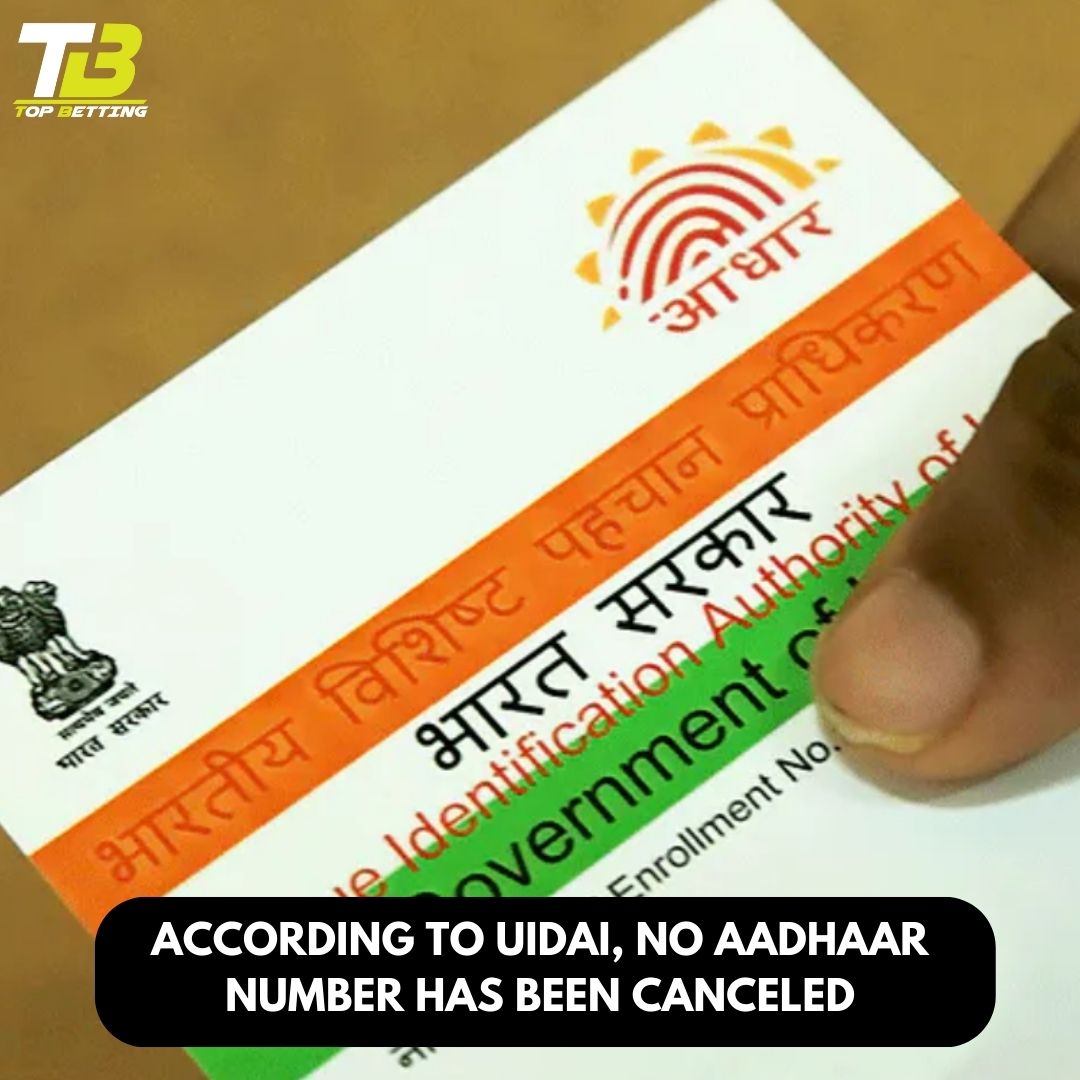
No Aadhaar number has been cancelled | According to UIDAI
Aadhaar number holders occasionally receive notifications as part of the efforts made to maintain the Aadhaar database current. It is made clear in this regard that no Aadhaar number has been canceled, according to UIDAI.
The Unique Identification Authority of India (UIDAI) stated on Monday that while notifications are periodically sent to Aadhaar number holders in order to maintain the Aadhaar database up to date, no numbers have been revoked.
According to UIDAI’s website, Aadhaar is the most widely used digital identification and is used to access a variety of subsidies, benefits, and services. The authority has started an updating process for Aadhaar information and documents to ensure the accuracy of the Aadhaar database.
Aadhaar number holders occasionally receive notifications as part of the efforts made to maintain the Aadhaar database current. It is made clear in this regard that no Aadhaar number has been canceled, according to UIDAI.
It stated that anyone with an Aadhaar number can file a grievance with UIDAI, guaranteeing that the complaint will be appropriately handled.
Such complaints would be appropriately handled, it stated. Mamata Banerjee, the chief minister of West Bengal, claimed on Sunday that the Aadhaar cards of residents in the state had been “deactivated” by the BJP-led national government in advance of the Lok Sabha elections, preventing them from receiving benefits from a variety of social welfare programs.
Speaking here in Birbhum district during a public distribution event, Banerjee had declared that her government would carry on with the state-run social programs even if the recipients did not possess an Aadhaar card.
“Be cautious—the Aadhaar cards are being deactivated by them (the BJP-led Centre). Numerous Bengali districts have seen the inactivation of some Aadhaar cards. They are taking this action to prevent individuals from receiving advantages from programs like “Lakshmi Bhandar” through free rations and bank transfers prior to the election, the source stated.
“I have given the chief secretary explicit instructions to make sure that individuals receive the benefits even in the event that their Aadhaar cards are not functioning. Bengali people don’t need to worry. As the CM had said, “I am here for you.
She said that a number of people in Birbhum, North and South 24 Parganas, North Bengal, and Jamalpur, Purba Bardhaman district, had their Aadhaar cards “delinked,” along with 50 other people.
Common myths and misconceptions about Aadhaar
Over the years, several myths and misconceptions have emerged regarding Aadhaar. It is important to debunk these myths and provide accurate information to dispel any confusion among the public. Here are some common myths associated with Aadhaar:
- Aadhaar is a citizenship document: Aadhaar is not a proof of citizenship, but rather a proof of identity and address. It is available to both Indian residents and non-resident Indians.
- Aadhaar is linked to surveillance: There have been concerns about Aadhaar being used for surveillance purposes. However, the UIDAI has repeatedly clarified that it does not collect any data on the purpose of authentication and that the Aadhaar system is designed to protect privacy.
- Aadhaar compromises privacy: Aadhaar has stringent security measures in place to protect the privacy of individuals. The biometric information collected during the enrollment process is encrypted and stored securely.
- Aadhaar can be misused for financial fraud: Aadhaar does not reveal any financial information and cannot be misused for financial fraud. It is merely a unique identification number that is linked to an individual’s biometric and demographic information.

UIDAI’s efforts to protect Aadhaar data and privacy
The UIDAI has taken several steps to ensure the security and privacy of Aadhaar data. It has implemented robust security measures, including encryption and authentication protocols, to prevent unauthorized access and protect against data breaches. Regular audits and security checks are conducted to identify and address any vulnerabilities in the system.
The UIDAI has also introduced the concept of Virtual ID (VID) and Limited KYC to enhance privacy and minimize the exposure of Aadhaar numbers. The VID is a temporary 16-digit number that can be used for authentication instead of the Aadhaar number. This ensures that the actual Aadhaar number is not shared during the authentication process. Limited KYC allows service providers to access only the necessary information required for authentication, further minimizing the risk of data misuse.

Conclusion – The future of Aadhaar and its role in India’s digital identity ecosystem
Aadhaar has undoubtedly transformed India’s identity system and has become an integral part of the country’s digital identity ecosystem. Despite the controversies and concerns surrounding Aadhaar, the UIDAI’s clarification that no Aadhaar numbers have been canceled brings much-needed relief to individuals who may have been worried about the safety of their Aadhaar numbers.
As technology continues to evolve, Aadhaar will play an increasingly important role in facilitating seamless and secure transactions. The UIDAI’s efforts to protect Aadhaar data and privacy, along with the introduction of additional security measures such as Virtual ID and Limited KYC, demonstrate its commitment to ensuring the integrity and reliability of the Aadhaar system.
It is crucial for individuals to stay informed about the latest developments and rely on credible sources for information related to Aadhaar. By understanding the facts and dispelling the myths, we can fully embrace the potential of Aadhaar in India’s digital future.











